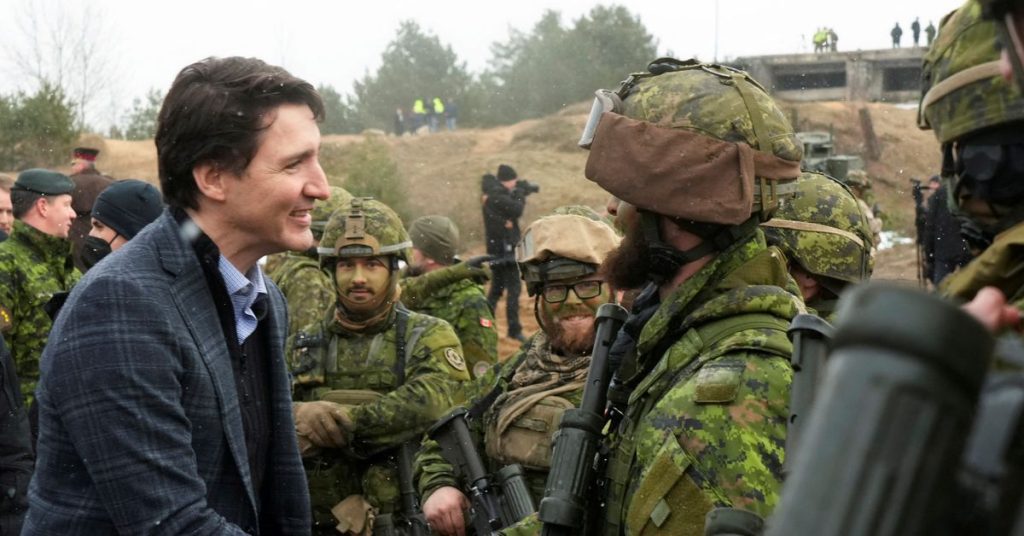
OTTAWA (Reuters) – Canada launched its long-awaited Indo-Pacific strategy on Sunday, outlining C$2.3 billion ($1.7 billion) in spending to boost military and cyber security in the region and pledging to deal with a “troubled” China. While working with her on climate change and trade issues.
The plan, detailed in a 26-page document, said Canada would tighten foreign investment rules to protect intellectual property and prevent Chinese state-owned companies from snapping up critical mineral supplies.
Canada seeks to deepen ties with the fast-growing Indo-Pacific region, which includes 40 countries representing nearly C$50 trillion in economic activity. But the focus is on China, mentioned more than 50 times, at a time when bilateral relations have been frosty.
Four ministers at a news conference in Vancouver took turns presenting details of the new plan, saying the strategy was critical to Canada’s national security and climate as well as its economic goals.
“We’re going to engage in diplomacy because we believe diplomacy is strength, and at the same time we’re going to be firm and that’s why we now have a very transparent plan to deal with China,” said Secretary of State Melanie Jolie.
Prime Minister Justin Trudeau’s liberal government wants to diversify trade and economic relations that depend heavily on the United States. Official data for September shows that bilateral trade with China accounted for less than 7% of the total, compared to 68% for the United States.
Canada’s outreach to Asian allies also comes as Washington has shown signs of becoming increasingly cautious about free trade in recent years.
The document underscored Canada’s dilemma in forging ties with China, offering significant opportunities for Canadian exporters, even as Beijing looks to shape the international order in “an environment more permissive to interests and values that increasingly deviate from us.”
China challenge
However, the document said cooperation with the world’s second largest economy is necessary to address some of the “existential pressures in the world”, including climate change, global health and nuclear proliferation.
“China is an increasingly destabilizing global power,” the strategy said. “Our approach … is shaped by a realistic and clear assessment of China today. In areas of deep contention, we will challenge China.”
Tensions with China escalated in late 2018 after Canadian police detained a Huawei Technologies executive, and Beijing subsequently arrested two Canadians on espionage charges. All three were released last year, but relations remain strained.
Canada earlier this month ordered three Chinese companies to divest their investments in Canadian critical minerals, citing national security.
In a section referring to China, the document said Ottawa would review and update legislation that enables it to act “decisively when investments from state-owned enterprises and other foreign entities threaten our national security, including in our critical minerals supply chains.”
“Because the region is so large and diverse, one size certainly does not fit all,” Canadian Chamber of Commerce President Perrin Petit said in a statement, adding that Canada’s priorities must be very delicate between and within countries.
Canada will enhance its naval presence in the region and “increase our military engagement and intelligence capability as a means of mitigating coercive behavior and threats to regional security,” the document said.
This will include the deployment of three frigates annually to the region, of two frigates currently, as well as the participation of Canadian pilots and soldiers in the regional military exercises, Defense Minister Anita Anand said in a separate press conference.
Canada belongs to the Group of Seven major industrialized countries, which want to take important measures to respond to North Korean missile launches.
The document said Ottawa was engaging in the region with partners such as the United States and the European Union.
She said Canada needs to continue talking to countries with which it has fundamental differences, but did not name them.
($1 = 1.3377 Canadian dollars)
(Reporting by David Leungren). Editing by Denny Thomas, Leslie Adler, Daniel Wallis and Mark Porter
Our standards: Thomson Reuters Trust Principles.

“Travel specialist. Typical social media scholar. Friend of animals everywhere. Freelance zombie ninja. Twitter buff.”





More Stories
Taiwan is preparing to face strong Typhoon Kung-ri
Israel orders residents of Baalbek, eastern Lebanon, to evacuate
Zelensky: North Korean forces are pushing the war with Russia “beyond the borders”